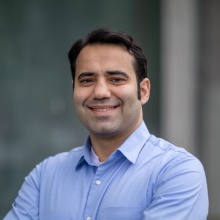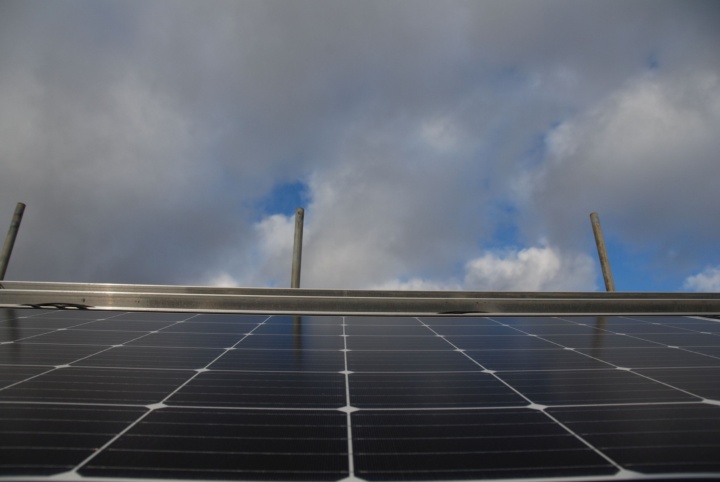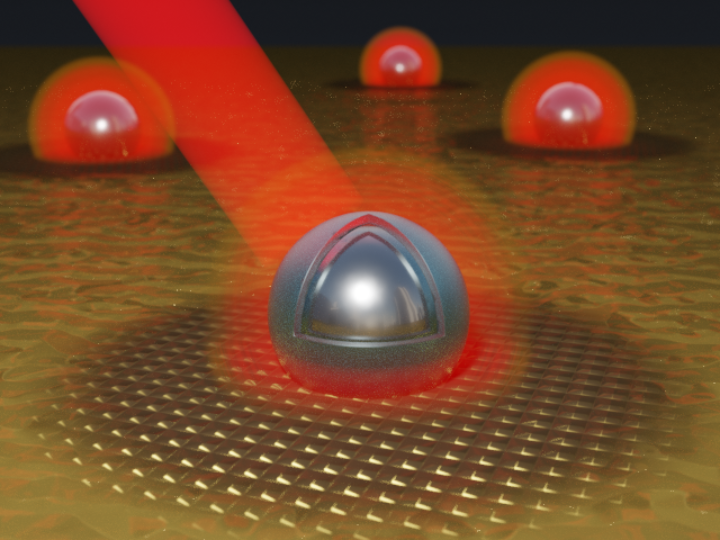Perovskite is a rising star in the field of semiconductor technology and a promising raw material for solar cells, light-emitting diodes, or detectors in the field of medical technology. In particular, perovskite thin films can be processed by crystallization from a solution. However, current crystallization methods often result in uncontrolled film growth. Prof Michael Saliba from the Institute for Photovoltaics (ipv) at the University of Stuttgart aims to control this growth using light and has received a EUR 1.5 million ERC Starting Grant from the European Research Council (ERC) for this purpose.
Perovskites, named after the Russian mineralogist Lev Perowski, are a new class of inexpensive semiconductors that have the breakthrough potential to generate and use energy in a highly efficient manner. Thin perovskite films are isolated by converting a liquid ink into a solid using a special drying process.
However, current crystallization methods for this liquid-to-solid phase transition often result in uncontrolled film growth that is not homogeneous in appearance, but has ragged grain boundaries of different sizes - similar to a mosaic. Undesirable effects often occur at the boundaries of these plates or grains, such as the penetration of water from the atmosphere. A lack of high-quality materials with large, controlled grains hinders the development of solution-processed semiconductors.
In this context, Michael Saliba's LOCAL-HEAT project (Controlled Local Heating to Crystallize Solution-based Semiconductors for Next-Generation Solar Cells and Optoelectronics) seeks to use light to control the fundamental nucleation and crystallization kinetics of semiconductor films when transitioning from the liquid precursor to the final solid-state. This light will create local heat packages that will result in controlled grains and thin films.
Two heating methods
Saliba intends to achieve local heating by developing two new methods: firstly, with laser beams that can be precisely adjusted in terms of location, and secondly, through the so-called thermoplasmonic heating of metallic nanoparticles. These act as intensifying antennas that turn incoming light into localized heat.
This new method will enable the development of perovskite solar cells that are highly efficient and that remain stable over several decades. Saliba is convinced that, "LOCAL-HEAT will thus revolutionize the production of solution-based materials and enable the development of new key technological applications in optoelectronics and medical technology,". As a scientist, he is already considering new types of solar cells, light-emitting diodes, detectors and much more besides.
About ERC starting grants
With the ERC Starting Grants, the European Research Council provides funding for outstanding scientists who are at an early stage in their careers and who are involved in innovative projects in basic research. Applications are judged solely on the criterion of scientific excellence. Actually (January 2022), ten active ERC grants are located at the University of Stuttgart, including five ERC Starting Grants. Overview of scientists at the University of Stuttgart who have been awarded an ERC grant.
Personal information:
Prof. Michael Saliba, born in 1983, received his PhD in Oxford in 2014 and is a leading expert in the field of metal halide perovskites. After holding positions at the École polytechnique fédérale de Lausanne, the University of Fribourg and TU Darmstadt, he was appointed at the University of Stuttgart in June 2020, where he currently heads the Institute for Photovoltaics (ipv).
The ERC Starting Grant is another link in the long chain of awards Michael Saliba has received, including the prestigious Heinz Maier Leibnitz Prize from the German Research Foundation (DFG), inclusion in the Young Scientists Group of the World Economic Forum and, more recently, the Curious Mind Award in the category Mobility and Energy. Clarivate Analytics recognized Saliba as a Highly Cited Researcher in 2021 for the fourth consecutive year, placing him in the top 1% of the world's most influential researchers in the field of chemistry.
Expert Contact:
Prof. Dr. Michael Saliba, University of Stuttgart, Institute for Photovoltaics, phone: +49 711 685- 67140, e-mail




